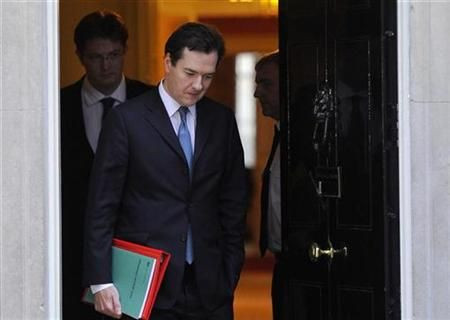UK third quarter GDP growth lower than initially estimated

UK economic growth in the third quarter was lower than previously estimated, raising concerns that growth will slow further next year.
Britain’s gross domestic product (GDP) rose 0.7 percent in the third quarter compared with the previous estimate of 0.8 percent growth, the Office for National Statistics said on Wednesday.
Markets had expected final estimate of GDP growth in the UK would match the previous estimate of 0.8 percent in June-September period.
UK’s GDP growth rate in the third quarter was revised down due to lower than estimated performance of production industries, construction, and business services.
While construction output was revised down to 3.9 percent from 4 percent, output of both production industries and business services was revised down to 0.5 percent.
However, household expenditure growth was unrevised at 0.3 percent.
Also, year-on-year GDP growth rate in the third quarter was revised down to 2.7 percent from an earlier estimate of 2.8 percent.
British retail sales rose 0.3 percent in November following an upwardly revised 0.7 percent increase in October.
UK’s trade deficit had widened in October due to a sharp increase in imports. Excluding oil and erratic items, UK’s exports were down 0.5 percent in October compared with last month, but imports were 4.5 percent higher.
But a recent survey by the Confederation of British Industry (CBI) showed UK factory orders continued to rise in December and the manufacturers expect the output growth to be robust in the next three months due to strengthening demand at home and abroad.
Inflation has been a concern in the U.K. for the past several months. Consumer price index inflation rose to 3.3 percent in November, remaining above Bank of England's (BoE) target for the ninth month, spurred by a hike in food and non-alcoholic drink prices.
In December, the BoE continued to maintain its base rate at 0.5 percent, as the economic recovery continues to remain uncertain and financial crisis continues to worsen in the eurozone.
Further, inflation is likely to stay above the target for 2011, given the forthcoming rise in the value-added tax (VAT) to 20 percent from the current 17.5 percent and continuing increases in import prices, the BoE said.
Amid concerns over uncertain economic conditions, the UK Office for Budget Responsibility lowered its forecast of economic growth to 2.1 percent next year, from 2.3 percent estimated earlier.
© Copyright IBTimes 2024. All rights reserved.





















